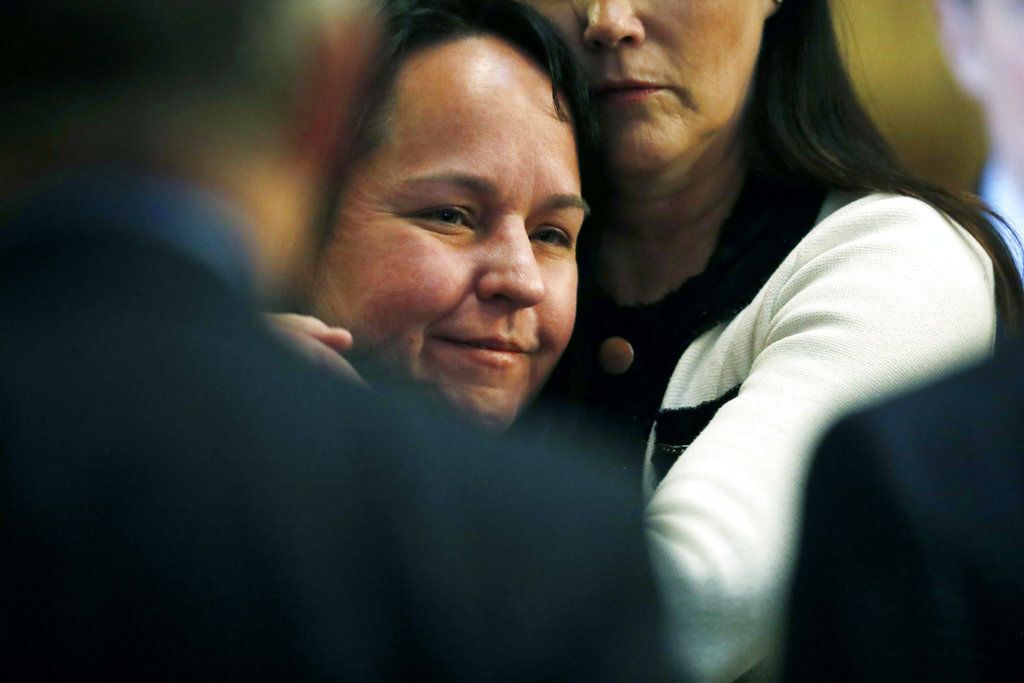Out West Roundup: Utah ski resorts giddy over Olympic bid, worried by DUI law

Utah
Utah ski resorts giddy over Olympic bid, worried by DUI law
SALT LAKE CITY – Utah ski officials kick off the new season energized by the growing possibility of another Winter Olympics bid and buoyed by two straight seasons of record visitation. But there’s also some concern that publicity surrounding the state’s strict new DUI law that goes into effect next year may keep skiers and snowboarders away by adding to the stigma that visitors can’t have fun in Utah.
State lawmakers voted to lower Utah’s blood alcohol limit for most drivers to 0.05 percent from 0.08 percent in a move they think will save lives. The change gave the predominantly Mormon state the strictest drunken driving threshold in the country and triggered backlash from tourism groups. It takes effect on Dec. 30, 2018.
The negative press that came after the Utah law was signed doesn’t help Utah as it tries to compete with Colorado, California and Canada for winter vacationers.
The American Beverage Institute ran full-page ads in Salt Lake City’s two daily newspapers and USA Today, featuring a fake mug shot under a large headline reading, “Utah: Come for vacation, leave on probation.”
“It just underscores that element that we’re working hard to dispense with, which is that Utah is a tough place to have fun,” Nathan Rafferty, CEO of Ski Utah, said. “It’s one step forward and two steps back.”
He isn’t worried about Utah’s reluctance to join Colorado, California and Nevada in legalizing marijuana, because Utah ski resorts embrace being known as family friendly destinations.
Wyoming
Wyoming legislators offer steps toward streaming more interim meetings
CHEYENNE – In the 10 or 11 months Wyoming lawmakers aren’t in session here, it can be difficult to keep up with their activities without racking up some serious mileage.
Live audio of regular-session debates is readily available online, but many interim committees are radio silent.
That means staying current on lawmakers’ efforts to solve the state’s budget shortfall so far this year would have required drives to Thermopolis, Buffalo, Saratoga, Riverton and Cheyenne.
The Select Committee on Legislative Facilities, Technology and Process recently recommended reviving a bill to record – not stream – meetings of all interim committees and post copies of the recordings online within a month, as well as develop a pilot program for streaming remote committee meetings in 2018. The committee also suggests amending rules to let committee chairs approve recording by audience members.
Quality streaming requires locations with adequate internet speeds, meaning towns with community colleges and larger cities with professional office space would be preferred.
But lawmakers have long used interim meetings for outreach away from Cheyenne, and committee heads routinely exercise their rights to hold meetings in their hometowns.
Kansas
Another conservative leads Kansas governor race after crisis
SHAWNEE, Kasas – A year ago, many voters concluded that Republican Gov. Sam Brownback’s experiment in cutting income taxes had ended in failure, opening the door to a more moderate agenda. But now an even more aggressively conservative figure could win next year’s race for governor.
Secretary of State Kris Kobach, a Harvard-, Yale- and Oxford-educated lawyer, leads a large field of likely candidates after building a national reputation as hardline provocateur on immigration and voter ID laws. His visibility rose sharply after President Donald Trump appointed him to help lead a commission on election fraud.
Although the election is still a year away, Kobach’s many critics wonder whether he can be stopped, citing his political skills, his name recognition and his loyal base of supporters.
The state’s recent financial woes offered a warning about how not to practice trickle-down economics. After Brownback persuaded the Republican-controlled Legislature to slash income taxes in 2012, Kansas struggled to balance its budget.
Voters last year ousted two dozen conservative lawmakers. Most of Brownback’s tax cuts were rolled back this year with a $600 million-a-year tax hike.
With the state’s GOP and Democratic Party fractured, the race could draw 20-some candidates.
Because Kansas has no runoffs, a Republican could win the nomination in a crowded primary with only a dedicated base of supporters.
Montana
Montana Republican Gianforte misled authorities on reporter’s assault
BILLINGS – A Montana congressman misled investigators about his assault on a reporter the day before he was elected and claimed that the “liberal media” was “trying to make a story” out of it, according to documents released last week.
U.S. Rep. Greg Gianforte, a Republican, told an officer in the aftermath of the attack that Guardian newspaper reporter Ben Jacobs had grabbed him by the wrist and pulled both of them to the floor, according to notes from a sheriff’s officer who interviewed the politician the night of the attack.
Multiple witnesses contradicted that account, and Gianforte later pleaded guilty to misdemeanor assault. The attack occurred the day before his victory in a May 25 special election, by which time many voters already had cast ballots by mail.
The documents include interviews with members of a Fox News crew who were in the room with Gianforte and Jacobs at the politician’s Bozeman campaign office. They said Gianforte became enraged over what he perceived as biased coverage before body-slamming Jacobs, throwing him to the ground and punching him.
In the hours after the assault, Gianforte’s campaign spokesman, Shane Scanlon, issued a statement also blaming the attack on Jacobs, saying the reporter had grabbed the candidate’s wrist. The records released Friday show that Gianforte first gave the misleading account to authorities.
His spokesman, Travis Hall, insisted the documents contained “nothing new.”
Arizona
More border crossers prosecuted in ‘new era’ of enforcement
PHOENIX – When U.S. Attorney General Jeff Sessions delivered his get-tough-on-immigration speech in the border city of Nogales early this year, he promised a “new era” in immigration enforcement.
Six months later, some of those promises are taking shape in federal court, but through the expansion of a nearly decade-old program known as Operation Streamline, in which immigrants accused of coming into the U.S. illegally complete a usually months-long prosecution process in one day. Critics say the program violates due process and does nothing to deter repeat offenses.
In Arizona, federal authorities are now prosecuting first-time border crossers – heavily increasing the program’s caseload – after years of prosecuting only repeat offenders, but how effective the program is at reducing repeat border crossings is unclear.
A report by the U.S. Government Accountability Office this year found that recidivism rates in programs such as Operation Streamline result in lower figures by only considering whether a defendant re-entered illegally within a year.
The Border Patrol finds only 14 percent of migrants who go through programs designed to deter border crossings reoffend. The GAO puts that figure at 29 percent based on its own methodology, which the Border Patrol has declined to adopt.
Hugo Reyna, a federal public defender who has been working Operation Streamline hearings since they were adopted in Tucson nearly a decade ago, says the program isn’t an effective recidivism tool. He says he’s seen little change in migrant patterns.
“When we started here in 2008, it was 70 defendants that were being processed and charged. Today we’re still at 70. So as far as deterrent is concerned, maybe it’s not quite as effective as they had anticipated,” Reyna said.














